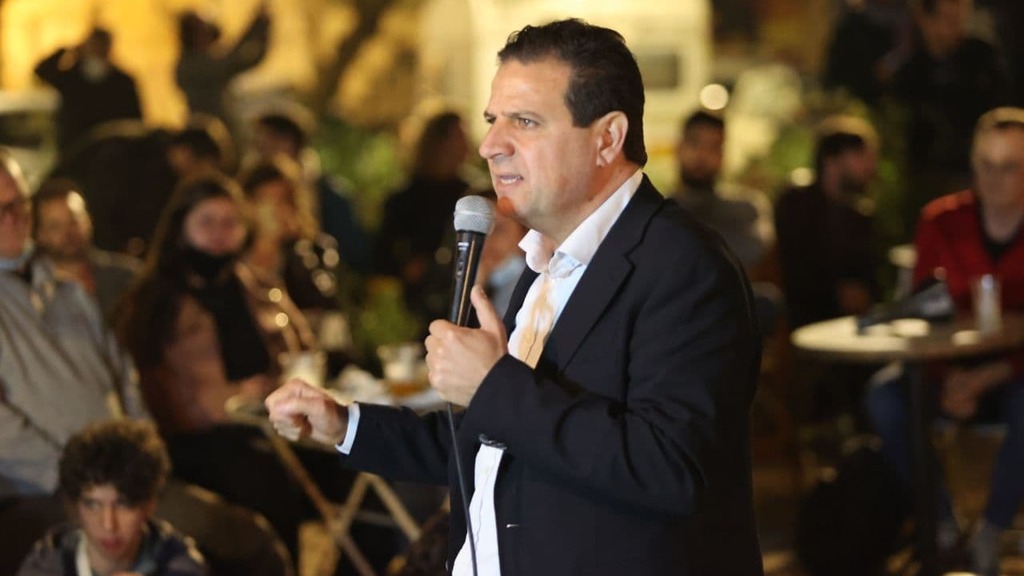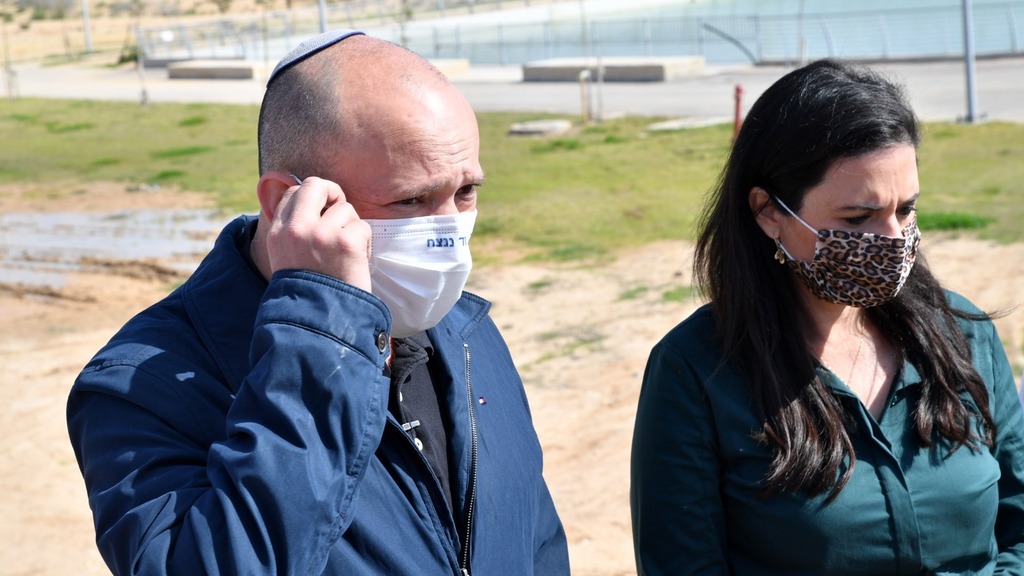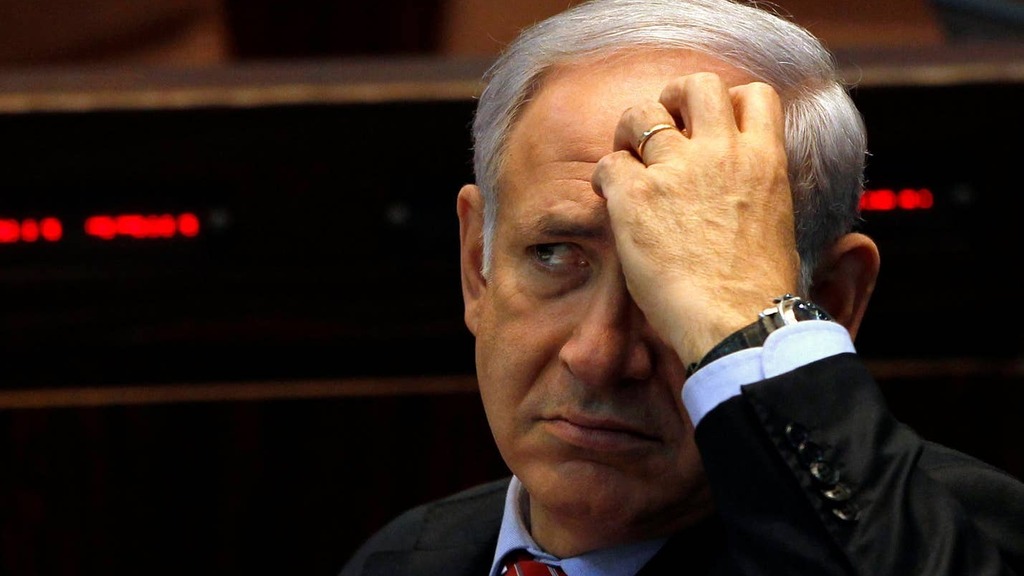One week after Election Day, Israel is no closer to a viable, stable government than it was last Tuesday, or last April, or the April before that, after initial negotiations among the various parties got underway.
While most Jewish Israeli families met over the weekend to celebrate the Passover holiday with hardly any restrictions due to the coronavirus, Jerusalem’s politicians their days working overtime in an attempt to finally pull the nation out of its ongoing political deadlock.
Yet, with the elections again producing no clear victor, and considering the various players’ growing list of terms, conditions and demands, it appears that a viable coalition is not in the offing.
The likeliest bet, yet again, is another go at the polls, which would be Israel’s fifth election in just over two years.
Yair Lapid, the clear leader of the center-left bloc of parties opposed to Prime Minister Binyamin Netanyahu’s continued reign, and the current head of the opposition, met on Sunday and Monday with his partners, the heads of the Labor, Meretz, and Blue and White parties.
Lapid, whose Yesh Atid party netted just over half the number of seats Netanyahu’s Likud landed on Tuesday, still hopes to become Israel’s next prime minister.
For that, however, he will need to secure the support of the two predominantly Arab parties, one of which has yet to declare its allegiance and has not ruled out joining a possible right-wing coalition led by Netanyahu.
4 View gallery


Predominately Arab Joint List faction leader ayman Odeh campaigns in Tel Aviv earlier this month
(Photo: Moti Kimchi)
Lapid met with the United Arab List leader, Mansour Abbas, on Sunday.
In order to clinch a 61-seat majority in Israel’s 120-member parliament, Lapid also will require yea votes from the right-wing New Hope party of Gideon Saar, a former Netanyahu confidante and Likud minister who, while vowing to do anything to unseat the powerful premier, also has pledged not to be part of an Arab-supported government.
A different potential coalition that could spell the end of Netanyahu’s continuous 12-year reign, is one that consists of the parties headed by Lapid, Saar and current Defense Minister Benny Gantz, but led by Naftali Bennett, another right-wing contender and former Netanyahu aide that during the elections promised to replace the prime minister’s “failed leadership.”
This, again, would demand at least passive cooperation by Arab lawmakers during the government’s swearing-in session, and for subsequent crucial votes such as the much-needed budget bill, a move Bennett, like Saar, has ruled out in the past.
While Lapid has signaled his intention to establish a government and become prime minister at all costs, his right-wing partners Bennett and Saar have drawn ever closer in recent days, hoping to force a more centered coalition on the left-wing candidate.
4 View gallery


Yamina leader Naftali Bennett with his deputy, former Justice Minister Ayelet Shaked
(Photo: Haim Horenstein)
“We’ve called on Lapid, Bennett and Saar to meet, the four of us, as soon as possible, to find a solution and end Netanyahu’s rule,” Gantz’s Blue and White said in a statement.
Not to be forgotten, of course, is Netanyahu himself.
After surviving three consecutive election cycles, but failing to hang on to the required majority needed to keep a government in power, and mere days before his trial on charges of bribery, fraud and breach of trust enters its evidentiary phase, the embattled prime minister is facing long odds of retaining a permanent post and forming a right-wing administration.
Netanyahu’s only hope seems to be recruiting two defectors from Saar’s New Hope party, which will enable him to introduce a 61-member coalition on the floor of the Knesset.
Yet unequivocal statements by potential candidates have made it clear that is not a likely outcome.
“The possibility of defection is mostly theoretical. We’ve seen in the past it’s a difficult and not very lucrative move to make,” Yohanan Plesner, president of the Israeli Democracy Institute, said.
The alternative road map for a Netanyahu-led government relies, again, on a highly tricky combination of right-wing and Arab-led parties.
While Islamist Ra'am leader Mansour Abbas has promised to lend his support to any bloc that will devote resources to Israel’s Arab community – which has been struggling for years with high crime and poverty rates – regardless of its right- or left-wing affiliation, it is the other side of the equation that is posing unsolvable terms.
4 View gallery


Netanyahu ally former Likud minister Ayub Kara with Ra'am leader Mansour Abbas on Saturday
Both Bennett, who will be essential in such a pairing, and other, more extreme right-wing lawmakers have repeatedly insisted they will not be part of any grouping that relies on the votes of the United Arab List or the Joint Arab List, the other parliamentary party with predominantly Arab representation.
Netanyahu himself, only days before the March 23 election, maintained he would not seek the United Arab List’s assistance, calling them his “rivals” and reminding anyone who would listen that they oppose Israel’s Zionist nature.
In the previous three election cycles, Netanyahu did not mince words condemning a possible left-wing alliance leaning on the votes of Arab lawmakers.
“It would be an immediate existential threat to the Jewish state,” the prime minister said when rumors of negotiations between Blue and White and the Joint Arab List broke last March.
Next Wednesday, two days after Netanyahu is due in a Jerusalem courtroom, Israel’s President Reuven Rivlin will, once again, nominate a prime ministerial candidate.
The president will hand the politician that he deems has the best chance to form a government in one month, with a possible two-week extension, to present his cabinet and rescue the beleaguered nation from its ongoing political nightmare.
But while Lapid, Netanyahu, Bennett and the rest tussle over the coveted prime minister’s office, the likeliest scenario, yet again, is another do-over: holding a fifth election in just over two years.
First published: 17:36, 03.30.21


